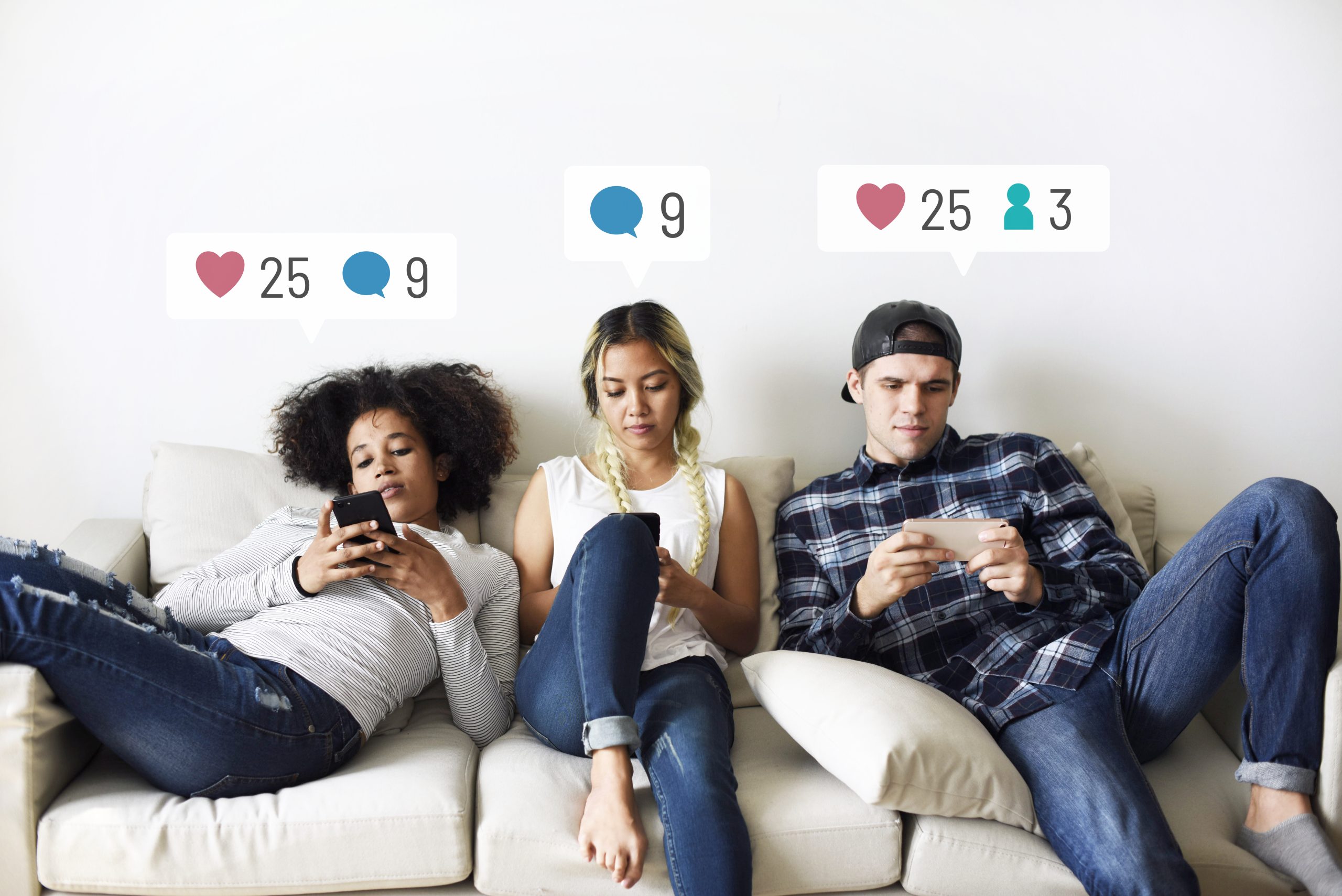Human beings are social animals who thrive on interactions and relationships. Social connections are essential for our mental and emotional well-being, as they shape our thoughts, feelings, and behaviors. How social connections shape our well-being is a topic of much research and debate. It is widely accepted that social connections play a vital role in our physical and mental health.
What Are Social Connections?

Social connections refer to the relationships we have with others, including friends, family, coworkers, and acquaintances. These connections can be both positive and negative, depending on the quality of the relationship. Positive social connections are characterized by support, understanding, and empathy, whereas negative social connections can lead to stress, conflict, and isolation.
The Impact of Social Connections on Our Well-being
The Impact of Social Connections on Mental Health
Our social connections influence our mental health in many ways. Positive social connections can provide a sense of belonging, increase our self-esteem, and reduce feelings of anxiety and depression. They can also help us cope with stress and provide emotional support during difficult times. In contrast, negative social connections can lead to feelings of loneliness, anxiety, and depression. A lack of social connections can also contribute to the development of mental health disorders.
The Impact of Social Connections on Physical Health

Social connections not only affect our mental health but also have an impact on our physical health. Studies have shown that people with strong social connections have better physical health outcomes than those who are socially isolated. This is because social connections provide opportunities for physical activity, reduce the risk of chronic diseases, and help us cope with illness and recovery.
Real-life Examples of Social Connections and Well-being
Real-life examples demonstrate the importance of social connections on our well-being. For instance, consider an elderly person who lives alone and lacks social connections. This person is more likely to experience depression, anxiety, and other mental health problems. On the other hand, an individual with a large social network has access to emotional support, advice, and opportunities for socializing and participating in activities.
How to Build and Maintain Social Connections
Building and maintaining social connections can be challenging, especially for those who are introverted or have social anxiety. However, there are many ways to build and maintain social connections, including joining clubs or organizations, attending social events, and volunteering. It’s also important to maintain existing relationships by staying in touch with friends and family members and spending quality time together.
The Relationship Between Social Connections and a Healthy Life

Our social connections have a profound impact on our overall health and well-being. Maintaining healthy social connections is not only crucial for our mental and emotional health, but it also significantly influences our physical well-being. Let’s explore how social connections contribute to a healthy life.
Emotional Support and Stress Reduction
Having strong social connections provides us with a support system that plays a vital role in managing stress and promoting emotional well-being. When we have people we can turn to during challenging times, share our thoughts and feelings, and receive understanding and empathy, it helps alleviate stress and reduces the risk of developing mental health issues such as anxiety and depression. Emotional support from social connections acts as a buffer against the negative effects of stress, allowing us to better navigate life’s ups and downs.
Habits and healthy Lifestyle

Social connections can positively influence our lifestyle choices and promote healthier habits. When we surround ourselves with individuals who prioritize their health and well-being, it tends to motivate us to adopt similar behaviors. For example, having friends who engage in regular physical activity can inspire us to be more active ourselves. Similarly, being part of a social circle that values nutritious eating can encourage us to make healthier food choices. Social connections can provide accountability, encouragement, and even companionship in pursuing healthy habits, making it easier to stick to them.
Disease Prevention and Recovery
Studies have consistently shown that individuals with strong social connections have a lower risk of developing various diseases and experience better health outcomes when facing health challenges. Social isolation, on the other hand, has been associated with an increased risk of chronic conditions, including cardiovascular disease, diabetes, and even mortality. When we have a network of social connections, we are more likely to have access to information, resources, and support related to preventive healthcare. Social connections can also assist us during the recovery process, both physically and emotionally, providing encouragement, assistance with daily tasks, and companionship.
Longer Life Expectancy

Having robust social connections has even been linked to increased longevity. Numerous studies have found that individuals with strong social networks tend to live longer lives compared to those who are socially isolated. The presence of social connections provides a sense of purpose, belonging, and meaning in life, which can positively impact our overall health. Additionally, social connections contribute to healthier behaviors, improved mental health, and a stronger immune system – all of which play a role in extending life expectancy.
Cultivating and Nurturing Social Connections
To harness the benefits of social connections for a healthy life, it’s important to actively cultivate and nurture them. This involves making an effort to establish new connections, maintaining existing relationships, and engaging in activities that foster social interaction. Joining clubs, organizations, or community groups aligned with our interests can help expand our social network. Regularly reaching out to friends and loved ones, spending quality time together, and being present in social situations can strengthen existing connections.
In conclusion, social connections are not only essential for our emotional well-being but also contribute significantly to our physical health. By fostering healthy social connections, we gain emotional support, stress reduction, healthier habits, disease prevention, and even a longer life expectancy. Prioritizing and nurturing our social connections is a vital component of leading a healthy and fulfilling life.
The Bottom Line
In conclusion, social connections are crucial to our well-being, both mental and physical. Positive social connections provide emotional support, and a sense of belonging, and can help us cope with stress and illness. Negative social connections can lead to feelings of loneliness, anxiety, and depression. Building and maintaining social connections is essential for overall health and well-being.
Sources:

Numerous reliable scientific sources have explored the importance of social connections to well-being. Here are some resources you might find useful:
- Holt-Lunstad, J., Smith, T. B., & Layton, J. B. (2010). Social Relationships and Mortality Risk: A Meta-analytic Review. PLoS Medicine, 7(7), e1000316. This is a meta-analytic review that found a 50% increased likelihood of survival for participants with stronger social relationships.
- Cacioppo, J.T., & Cacioppo, S. (2014). Social Relationships and Health: The Toxic Effects of Perceived Social Isolation. Social and Personality Psychology Compass, 8(2), 58-72. This article discusses the impact of perceived social isolation on health.
- Uchino, B. N. (2006). Social support and health: a review of physiological processes potentially underlying links to disease outcomes. Journal of Behavioral Medicine, 29(4), 377-387. This paper reviews the physiological processes through which social support can impact health.
- Cohen, S. (2004). Social Relationships and Health. American Psychologist, 59(8), 676–684. This article covers the pathways through which social relationships can impact physical health.
- Kawachi, I., & Berkman, L. F. (2001). Social Ties and Mental Health. Journal of Urban Health, 78(3), 458-467. This paper discusses the impact of social ties on mental health.
Remember to check the access availability of these sources. Some may be behind paywalls, but you can access them through an academic library or by contacting the authors directly.





